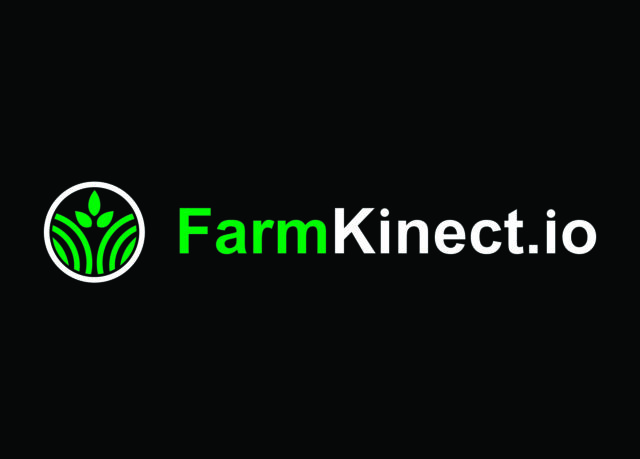The following is a discussion I recently had with Joe Sparrow, a sales representative with Alltech. Joe graduated from Virginia Tech this year. He is currently one of Alltech’s youngest sales representatives and works in Kentucky. PD EDITOR: For those young dairy producers out there that you work with or maybe that were classmates of yours and are now in the industry, what would be your recommendations to help young people prepare to become leaders in the industry?
Joe: I think more than anything – expand your horizons. The more you get out and see other parts of the country to see what’s working for another guy, then you can bring some of those ideas back to your farm, bring something that might or learn something that might not work, but just knowing that it wouldn’t work or knowing what does work so that if you got the opportunity you could use those ideas and use that knowledge.
I’ve had trips like that. I would just say travel and see what works and what doesn’t. Expand your horizons!
PD EDITOR: What would you recommend to students who are looking at different dairy programs? How do you choose a school?
Joe: I’d say go to Virginia Tech! No, I think there are quite a few good dairy schools. Obviously, I’m a little biased, but I still think there are quite a few good dairy schools.
I’d say more than anything, talk to the professors and talk to the current students to figure out what they have to say about whatever is going on at that school. Ask students what they think about their classes.
PD EDITOR: And what would you say to people who have chosen a university already? How can they make the most of the time they have at school to maximize opportunities after graduation?
Joe: I’d say internships. I think internships are a huge, huge benefit to students because there are a lot of companies that look for interns. You never know if there’s something you would like doing as a possible occupation, but an internship gives you an excellent idea what it’s like.
If there’s someone who wants to go back to their own dairy, I would say get an internship at a different dairy, to maybe pick up a few ideas or pick up something different. If you’re dead-set on going back to your own farm, I think that’s the best thing you can do.
You could also take different classes outside the dairy industry. You could take world regions or things like that and learn what’s going on out in the world, whether it be ag policy or figuring out what the general consensus is about ag culture. Classes like that, if that makes any sense.
But I think that internships are the best thing to do while you’re in school. Sort of figure out the theory and direction you want to go after you graduate.
Talk to professors, talk to current students, talk to people who have graduated.
PD EDITOR: How would you categorizes the areas of study within a dairy degree?
Joe: I’d say one is the feed side, one is the actual dairy side (whether working at a dairy or being a herdsman) and the third is genetics (such as the A.I. industry). Maybe I’m leaving something out. Those were the three that I looked at when I went to school when I got over the idea of being a vet. Those three things.
PD EDITOR: So pre-vet, would probably be a fourth category?
Joe: Yeah, and there’s a bigger category of students interested in that when people start school than when they finish school. But I looked at A.I. organizations. I didn’t get an internship there, but then I looked at dairies, and I worked at a dairy in Maryland that I would put up against any dairy in the country as far as being progressive. They were interested in the top genetics and that was something that interested me.
PD EDITOR: Tell me from your perspective as a young person in the industry, what is the industry going to be like in 20 years? Obviously there’s going to be a shift in demographics when older producers retire. How do you foresee that transition playing out?
JOE: I don’t know, that’s a tricky question, a tough question. It’s hard for me to see that far down the road.
I’d like to say that it’s going to be fine. I think there’s young guys that are coming in, maybe not quite as many young guys as you would like to see, but there is a base of young dairymen in [Kentucky], and we’d like to get more of them. I’d like to think that it would be a smooth transition, but it’s obviously going to be somewhat rocky when you go changing hands.
I definitely don’t see a drop-off after the older generation shifts over. I don’t think it’s going to go down the mountain, but I think it’s something that’s going to be a little rocky. I think in the end, it will all work out. I don’t know, that’s a tough question.
PD EDITOR: What are dairy producers in Kentucky really good at doing and maybe some of the things they could do a little better at working on in general?
Joe: To improve on – think in general to work on time management. Management strategies is something that I think some of the larger dairies could do. Spending more time actually managing and less time doing on the farm. Spend more time developing managers who you could go to and check with during the day rather than going to check each thing yourself. Have somebody that you can put in a position of responsibility so that you don’t spend as much time actually doing things on the dairy.
I think the dairymen in Kentucky are almost all right down the line excellent cow men or cow women. I think they know their cows; they do a good job of taking care of their cows and want their cows to be in a profitable situation.
PD EDITOR: If you were to look at the guys that you think are going to make it in dairying, what are some of the things that they are doing to make sure they stay in business?
Joe: I think resiliency is the big issue there. They might be preparing themselves for a shockwave to come through, such as grain prices to go really high like they have. I think they have prepared for something bad to happen. That is the biggest thing it seems like they’re doing.
And they are making sure that they can still be profitable at a lower milk price. They’ve been capitalizing on the higher milk prices, but being prepared if milk prices were to go back down to lower levels.
And they are keeping up with everything. When it is time to put in a new parlor, they are getting it done. Things like that.
A lot of those guys love to read, love to find out what’s going on, what successes people are having, what problems people are having. PD



